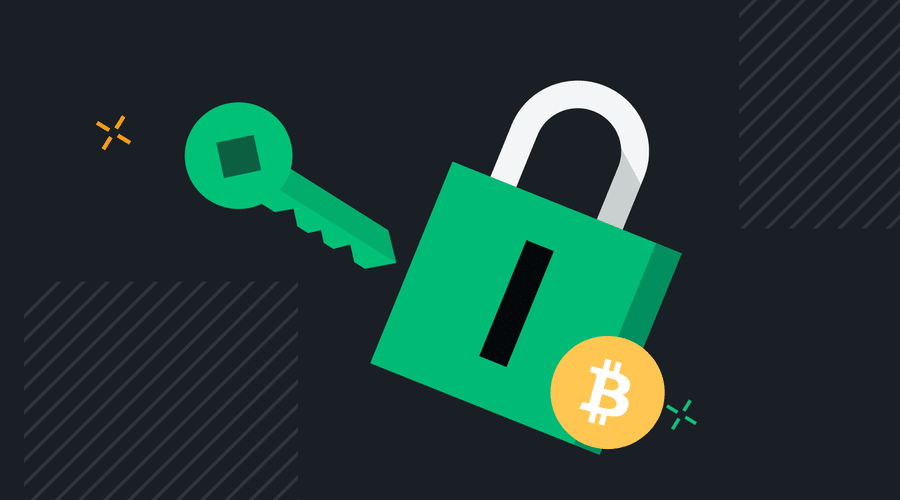
The Psychological Aspect of Cold Storage: Overcoming Fear and Building Trust
- Cary
- June 16, 2023
- Crypto
- Crypto, cryptocurrency
- 0 Comments
In today’s digital age, the concept of cold storage has gained significant importance, especially in the realm of cybersecurity. Cold storage refers to the practice of keeping sensitive data or assets offline, away from potential online threats. While cold storage is an effective security measure, it can also evoke fear and uncertainty in individuals due to the perceived risk of losing access to their valuable information. This article delves into the psychological aspect of cold storage, explores the underlying fears, and provides insights on how to overcome them while building trust in this essential security practice.
Understanding Cold Storage
Cold storage involves the offline storage of sensitive data or assets, such as cryptocurrencies, encryption keys, or personal information, to protect them from unauthorized access and cyber threats. By keeping this information away from online networks, cold storage ensures a higher level of security. However, due to the nature of cold storage, some individuals may experience fear and apprehension regarding the accessibility and safety of their stored assets.
The Fear of Loss and Inaccessibility
One of the primary psychological barriers associated with cold storage is the fear of loss and inaccessibility. People may worry about losing their stored assets if they are unable to retrieve or access them when needed. This fear stems from the belief that offline storage equates to reduced control and potential loss.
Trusting the Security of Cold Storage
To overcome the fear of loss, it is crucial to establish trust in the security of cold storage. Users need reassurance that their assets are adequately protected and that there are measures in place to ensure accessibility when required. Building this trust can be achieved through various strategies that address the psychological concerns associated with cold storage.
Overcoming Fear through Education and Awareness
Education and awareness play a vital role in dispelling fears related to cold storage. By providing clear and concise information about the benefits and functionalities of cold storage, individuals can gain a better understanding of its purpose and the security measures in place. Education empowers users with knowledge, enabling them to make informed decisions and feel more confident in their choice to utilize cold storage.
Establishing a Sense of Control and Ownership
To alleviate concerns regarding loss of control, it is essential to emphasize the user’s sense of control and ownership over their stored assets. Cold storage solutions should provide users with secure and user-friendly interfaces that allow them to manage their assets effectively. By giving users control and ownership, the fear of being unable to access or retrieve their assets can be minimized.
The Role of Transparency and Accountability
Transparency and accountability are key factors in building trust. Cold storage providers should maintain transparency by clearly communicating their security protocols, storage mechanisms, and backup strategies. Additionally, being accountable for any security incidents and promptly addressing user concerns can help establish trust in the reliability and integrity of the cold storage solution.
The Power of User Experience and Convenience
A positive user experience and convenience can significantly contribute to overcoming fear and building trust. Cold storage solutions should prioritize usability, ensuring that users can easily navigate and interact with the platform. Streamlined processes, intuitive interfaces, and clear instructions can enhance the overall user experience, making users feel more at ease and confident in the security of their assets.
Building Trust through Reputation and Industry Standards
Reputation and adherence to industry standards are crucial in the cold storage space. Users are more likely to trust established and reputable cold storage providers with a proven track record of security and reliability. Certifications and audits from recognized authorities can further bolster the reputation of a cold storage solution, instilling confidence in users and mitigating their fears.

The Impact of User Feedback and Testimonials
User feedback and testimonials can play a significant role in assuaging fears and building trust. Positive experiences shared by existing users can help potential users overcome their concerns and perceive cold storage as a reliable and secure option. Cold storage providers should actively seek and showcase user feedback and testimonials to demonstrate their commitment to customer satisfaction and security.
- Credibility boost: Positive user feedback and testimonials provide social proof and enhance the credibility of a cold storage solution. When potential users see that others have had a positive experience with the service, it increases their trust and confidence in the provider.
- Alleviating fears: User feedback and testimonials can help address specific fears or concerns that potential users may have. If existing users share their positive experiences regarding the security, accessibility, and reliability of the cold storage solution, it can alleviate the fears of potential users who might be hesitant to adopt cold storage.
- Real-life examples: User testimonials offer real-life examples of how the cold storage solution has successfully protected assets and provided peace of mind. These stories can resonate with potential users and help them visualize the benefits and outcomes they can expect from utilizing cold storage.
- Building a sense of community: User feedback and testimonials create a sense of community among users of the cold storage solution. This community aspect fosters trust and encourages potential users to join a network of satisfied customers who rely on the same security solution.
- Continuous improvement: User feedback plays a crucial role in driving improvements and enhancements to the cold storage solution. Providers can gather valuable insights from user feedback to identify areas for improvement and implement updates or features that address user needs and concerns.
- Addressing doubts: User testimonials can address specific doubts or objections potential users may have about the effectiveness or reliability of cold storage. When users share their positive experiences and vouch for the security and accessibility of the solution, it helps overcome doubts and encourages potential users to make the decision to adopt cold storage.
- Word-of-mouth marketing: Positive user feedback and testimonials can act as powerful word-of-mouth marketing for the cold storage solution. Satisfied users may share their experiences with others, leading to increased brand awareness and potentially attracting new users to the service.
- Emotional connection: User testimonials often convey the emotional impact of utilizing cold storage. They can highlight the peace of mind, security, and trust that users experience when their valuable assets are safely stored offline. This emotional connection resonates with potential users and helps them understand the personal benefits of adopting cold storage.
- Differentiation from competitors: User testimonials can differentiate a cold storage provider from its competitors. When potential users see positive feedback and testimonials highlighting the unique features, reliability, and security of the solution, it sets the provider apart and positions them as a trustworthy option in the market.
- Continuous feedback loop: User feedback and testimonials create a continuous feedback loop between the provider and its users. By actively seeking and incorporating user feedback, providers can demonstrate their commitment to customer satisfaction and continually improve their cold storage solution to meet evolving user needs.
Collaboration and Industry Partnerships
Collaboration and partnerships within the cold storage industry can foster trust and credibility. Engaging in collaborations with reputable organizations, such as security firms or blockchain projects, can enhance the perceived security of a cold storage solution. By joining forces with industry leaders, cold storage providers can showcase their commitment to the highest security standards, further instilling trust in their offerings.
Continual Improvement and Adaptability
Cold storage solutions must continually evolve to address emerging threats and vulnerabilities. Regular updates, security audits, and the adoption of new technologies or encryption standards demonstrate a commitment to maintaining a secure environment. By showcasing a proactive approach to security, cold storage providers can alleviate fears and instill confidence in their users.
Cold Storage Myths and Misconceptions
There are several myths and misconceptions surrounding cold storage that contribute to fear and uncertainty. Addressing these misconceptions head-on and providing accurate information can help users make informed decisions based on facts rather than unfounded fears. Common myths such as “cold storage is too complicated” or “assets stored offline are prone to loss” can be debunked through educational content and clear explanations.
Cold Storage vs. Hot Wallets: A Comparative Analysis
Comparing cold storage with hot wallets, which are online wallets connected to the internet, can help users understand the benefits and trade-offs of each option. By highlighting the enhanced security and reduced risk of cold storage, users can make more informed decisions about their preferred storage method. Clear explanations of the advantages and disadvantages of each option can alleviate fears and guide users towards the most appropriate choice.
The Future of Cold Storage: Advancements and Innovations
The field of cold storage continues to evolve with advancements and innovations. This section explores potential future developments that may further enhance the security, accessibility, and user experience of cold storage solutions. By discussing upcoming trends, users can gain confidence in the long-term viability and effectiveness of cold storage as a security measure.
Conclusion
Cold storage is a vital aspect of modern-day cybersecurity, providing an offline solution to protect sensitive data and assets. While fears and uncertainties may arise due to the perceived risk of loss and inaccessibility, these concerns can be overcome by focusing on education, transparency, user experience, and collaboration. By actively addressing these psychological aspects, cold storage providers can build trust and empower individuals to embrace the security benefits it offers.
Frequently Asked Questions
1. Is cold storage suitable for all types of assets? Cold storage is commonly used for cryptocurrencies and encryption keys but can be applicable to various types of assets, including sensitive documents and personal information. The suitability may vary depending on the specific requirements and nature of the assets.
2. Can I access my assets stored in cold storage at any time? While cold storage prioritizes security, it may involve additional steps or waiting periods to access stored assets. The exact accessibility process depends on the chosen cold storage solution and its protocols.
3. Are there any risks associated with cold storage? While cold storage is generally considered secure, there are still potential risks to be aware of, such as physical damage or loss of backup mechanisms. It is important to choose reputable providers and follow recommended security practices.
4. How can I ensure the safety of my cold storage assets in case of unforeseen events? To enhance safety, it is advisable to maintain multiple backups in separate secure locations. This redundancy helps mitigate the risk of complete loss in the event of unforeseen circumstances.
5. Are there alternatives to cold storage for securing assets? Yes, hot wallets and online storage options provide alternatives to cold storage. However, it’s important to weigh the trade-offs between convenience and security when deciding on the most suitable option for your specific needs.


